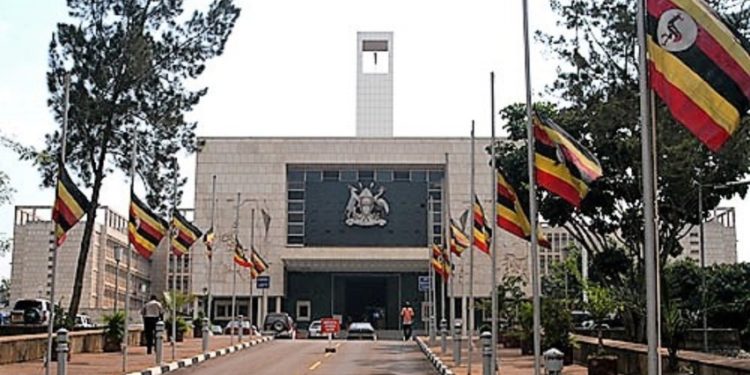In Uganda today, the title “Honorable” has become a common term of address, misused and overextended by politicians and aspirants alike. What was once a prestigious title reserved for distinguished members of legislative assemblies is now being grabbed or even handed out to anyone with ambitions of entering politics, diluting its meaning and undermining the very values it represents.
The title “Honorable” has its origins in Britain, where it was first used to address members of the British Parliament and other public officials who held high office. The term was a mark of distinction, symbolizing respect for individuals who had been duly elected to represent the people in the National Assembly. As Uganda is a member of the Commonwealth, this practice was adopted, with only those who were Members of Parliament or high-ranking officials qualifying for the title.
In its true sense, “Honorable” was meant to reflect a person’s proven service, leadership, and moral standing, especially in public service. Unfortunately, in Uganda, this tradition has sadly been misappropriated, with aspirants freely adopting the title before even proving themselves in any capacity. The fear is that this practice could cause the title to lose all its intended value.
The current trend of aspiring politicians referring to themselves as “Honorable” before they have held any office is concerning. Individuals running for local council positions or even village committees now assume this title long before being elected, turning a respected honorific into a routine label. This misuse has been further exacerbated by political campaigns where hopefuls plaster the title on posters and fliers in the hope of garnering respect and votes.
Unfortunately, this culture has led to a dilution of the term’s true meaning. The respect traditionally given to public servants has been undermined, with every Tom, Dick, and Harry adopting it to gain political mileage. This risks making the title obsolete in the eyes of the public, rendering it meaningless.
Even more worrying is how the self-claimed Honourables- political hopefuls have turned burial ceremonies into platforms for launching campaigns. Once reserved for paying last respects to the deceased and offering condolences, these solemn occasions are increasingly being hijacked from the church by politicians, who use them to seek votes.
This practice not only disrespects the families and communities in mourning but also distorts the cultural significance of such ceremonies. Traditionally, burial ceremonies are sacred moments for reflection, collective grief, and celebration of the deceased’s life. However, with politicians stepping up to make campaign speeches, these moments are reduced to opportunistic gatherings where political ambitions overshadow the true purpose of the event.
What are teaching children and young people at these ceremonies? They are now being exposed to the idea that burials are appropriate places to discuss political aspirations, setting a dangerous precedent for the future. This undermines our cultural values and the sanctity of such important social functions. If unchecked, this behavior could become the norm, and future generations may lose sight of the real meaning of traditional ceremonies.
Just imagine someone has lost a mother, a child, or their only spouse, and a politician-to-be is given the chance to address mourners. Instead of offering condolences or a message of consolation, the politician focuses on theatrics and comical speeches, with some even going vulgar to excite the mourners and appear powerful. Mourners find themselves laughing! Clapping! Not in recognition of the deceased’s contribution, but to cheer the “Honorable-to-be.” How did we reach this point as a society?
Given the extent to which political figures have encroached on these ceremonies, it is time for the church to take a stand. Religious leaders and institutions must ring-fence burial ceremonies and ensure that they remain places of respect and solemnity. Politicians and mourners alike should be asked to limit their messages to condolence remarks, and political campaigning should be firmly discouraged.
Church leaders have the moral authority to remind politicians that there is a time and place for everything, and burial ceremonies should not be the stage for political posturing. Politicians can always be considered for office later on when they come to contest, but they should refrain from exploiting sensitive moments to promote their ambitions.
It is crucial that Ugandans start holding their leaders and aspirants to higher standards. Only those who have earned the title through service and integrity should be called “Honorable.” Until then, aspiring politicians should focus on proving themselves to the electorate before adopting the title prematurely.
The misuse of “Honorable” must be addressed to restore the dignity of Uganda’s public offices. If we continue down this path, the title may lose its relevance entirely, and it will be difficult for future generations to recognize the values it was once meant to represent.
And as Uganda’s political landscape evolves, there is an urgent need for reflection on how we engage with political culture and tradition. The indiscriminate use of titles and the exploitation of cultural events for political gain reflect a lack of respect for the very institutions that bind us as a society.
Leaders, religious institutions, and communities must work together to preserve the integrity of both the title “Honorable” and our cherished traditions. It is time to return to the true meaning of public service and ensure that we honor those who genuinely serve the people—both in name and in practice.
The author, Trevor Solomon Baleke is a Deputy RDC
+256 752 009 014















